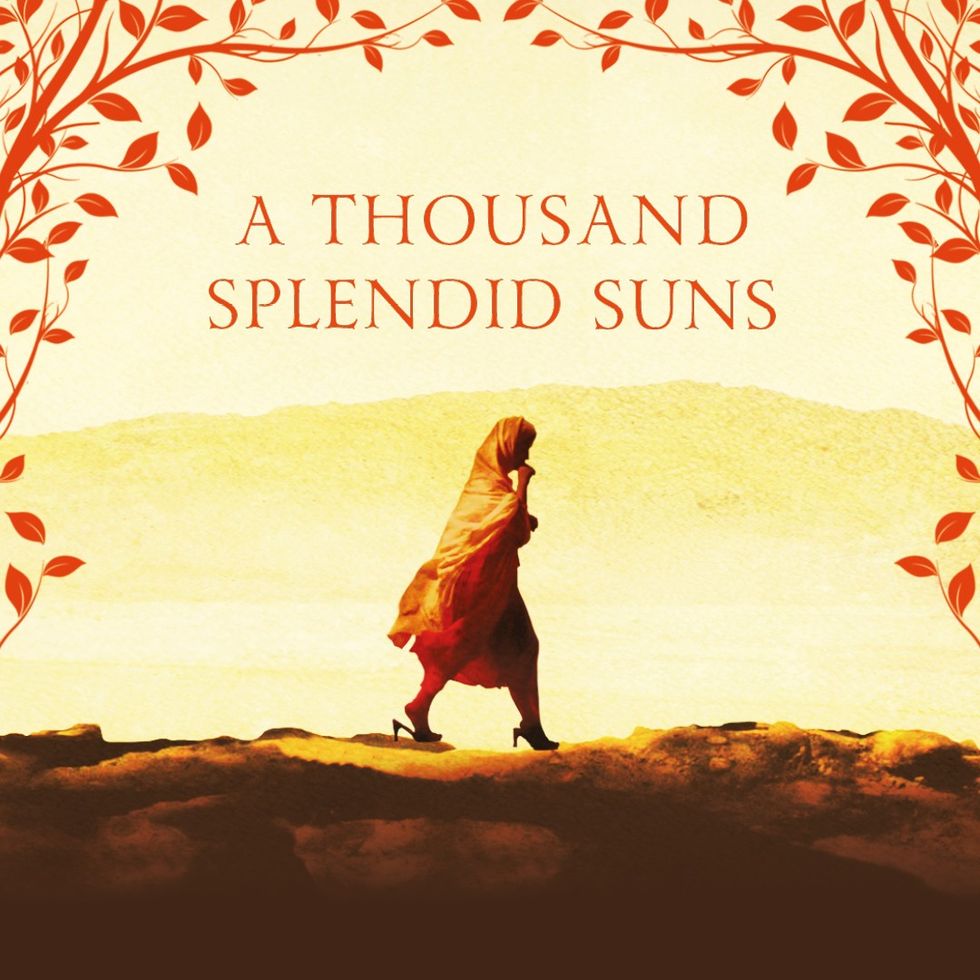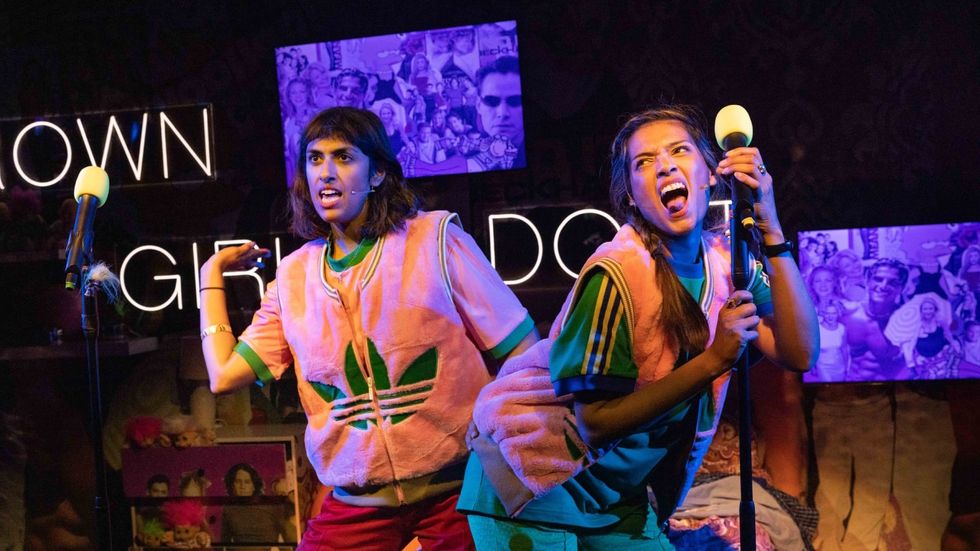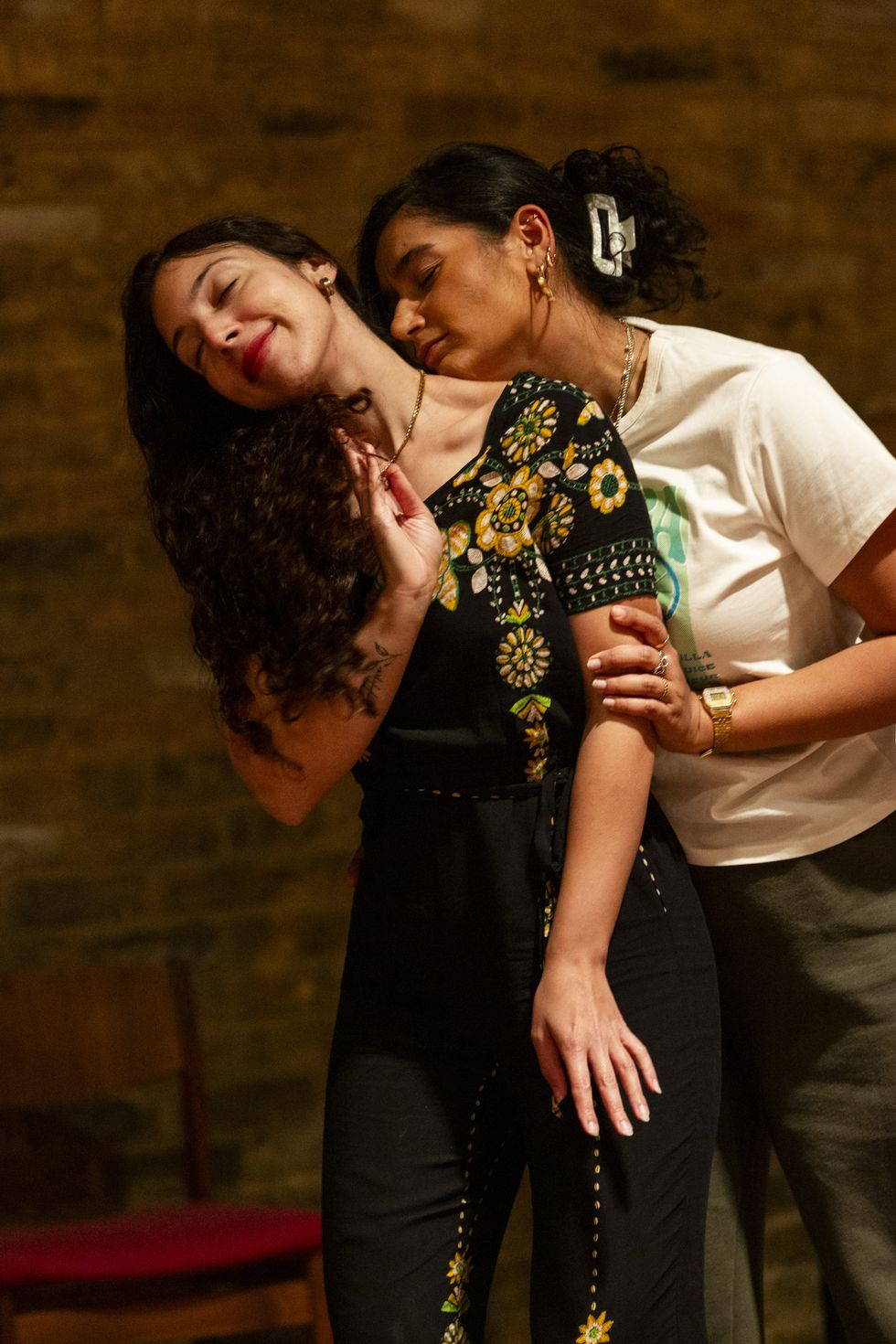A STAGE adaptation of A Thousand Splendid Suns is a celebration of women’s strength and their ability to endure, its playwright has said.
Irish Indian writer Ursula Rani Sarma, 47, worked on Afghan American author Khaled Hosseini’s novel for a new production which opens at the Birmingham Repertory Theatre next Friday (11).
The novel tells the story of two women united by circumstance in 1990s Afghanistan. Set against the backdrop of civil war and Taliban rule, it follows orphaned Laila, who becomes the second wife of neighbour Rasheed, and his first wife Mariam.
Rani Sarma told Eastern Eye the core message in the play is about love and resilience that ultimately leaves one feeling the world might be all right.
In an interview, she said, the American Conservatory Theater in San Francisco approached her to adapt the book.
“I had previously worked with them and written a play, and they felt my artistic sensibility might be a good fit for the adaptation. When I met Hosseini, he gave me considerable freedom. He explained that a novel cannot be a play and must exist as its own entity,” she said.
“He suggested that since he is not a playwright and I am, I should feel free to recraft the material.”
Directed by Roxana Silbert, the cast includes Rina Fatania (Mariam), Kerena Jagpal (Laila), and Jonas Khan (Rasheed), among others.
Rani Sarma said, “The adaptation took around two years, which is not particularly long for a theatre piece. I would typically spend about six months writing the first draft, followed by workshops where I would revise and refine the material.
“After the theatre company committed to the production, we moved towards the rehearsal stage. I flew to San Francisco and was present throughout the entire rehearsal process. Hosseini would occasionally visit, but he was careful to give us space to develop the piece without feeling overshadowed by the book’s success.

“He was always available if I needed guidance, and we would have conversations about specific elements, when necessary. He proved to be a wonderful person – a true humanitarian and champion of women – who was kind and generous, wanting me to feel free to transform the novel into a proper theatrical piece.”
Rani Sarma, who lives in Lahinch, west Ireland, said her Asian heritage (her father is from Assam) significantly influenced her writing. At a young age, She started reading Indian poet Rabindranath Tagore, who won the Nobel prize for literature.
“When you are mixed race, you never fully belong in any place. As a result, you bring a distinct artistic insight with you. I believe this was one reason I was approached to adapt this work – being a woman of mixedrace heritage with knowledge and interest in that part of the world,” she said.
“Growing up as a mixed-race Irish Indian in Ireland during a time when there were very few mixed-race families, I was the only such family in our village and wider community. This experience meant growing up always on the outside looking in, which allowed me to form a unique commentary and perspective.
“I am deeply interested in how things work, particularly how society functions and why people behave as they do. Despite the significant cultural differences between Afghanistan and India, I noticed similarities in the relationships between men and women. I could even see echoes in past Irish society, where women were often treated as commodities and traded, such as farmers marrying their daughters to other farmers.
Rani Sharma, who writes plays for the National Theatre, the Abbey Theatre and EON Productions, said, “The adaptation tries to present a nuanced view of human nature, exploring the spectrum of male characters and understanding the characters’ behaviour through a lens of empathy and psychological complexity.”
Arts “should reflect society”, she said, adding there should be plays and films about “regular people from diverse backgrounds”. “I want my daughter to grow up seeing versions of herself on screen and stage, believing she holds as much space as anyone else. This contrasts with the whitewashed, maledominated culture I grew up in, where it was challenging to convince people that your voice was worth hearing.
“Over my twenty-year career, I have witnessed a notable shift in the arts. When I first started writing, there was very little interest in female-led stories, both in theatre and across television and film.

“In the last decade, there has been a welcome change, with increasing interest in female narratives and perspectives from different cultural backgrounds,” she said.
“My aspiration is to tell stories about regular people from diverse backgrounds, without focusing solely on issues like forced marriages or terrorism. I am currently working on a BBC television show that will feature a regular Indian family in a prime-time legal drama, hoping to normalise representation.”
Her advice to aspiring Asian artists? “Believe in yourselves and understand that your voice matters. There is an appetite for diverse voices in the industry. Artists should be their own advocates, confident in the validity of their work without being arrogant.
They should do thorough research before sharing their work, selecting appropriate organisations and platforms that are receptive to their narratives.”







 An explosive new play that fuses biting satire, history and heartfelt storytellingPleasance
An explosive new play that fuses biting satire, history and heartfelt storytellingPleasance








 Lunchbox is a powerful one-woman show that tackles themes of identity, race, bullying and belongingInstagram/ lubnakerr
Lunchbox is a powerful one-woman show that tackles themes of identity, race, bullying and belongingInstagram/ lubnakerr She says, ''do not assume you know what is going on in people’s lives behind closed doors''Instagram/ lubnakerr
She says, ''do not assume you know what is going on in people’s lives behind closed doors''Instagram/ lubnakerr
 It is rare to witness a show that is both this hilarious and this importantAMG
It is rare to witness a show that is both this hilarious and this importantAMG
 Hunia Chawla
Hunia Chawla A still from rehearsal
A still from rehearsal
The cast of Marriage Material in key moments from the play, including Avita Jay, Kiran Landa, Omar Malik, Irfan Shamji and Anoushka Deshmukh
Sathnam Sanghera’s 'Marriage Material' adapted into bold new play on conformity
The play Marriage Material at the Lyric Hammersmith Theatre is Gurpreet Kaur Bhatti’s adaptation of Sathnam Sanghera’s novel of the same name, which first came out in 2013.
She is lucky to have Iqbal Khan direct Marriage Material. The play, a co-production with the Birmingham Rep, is set in the late 1960s. Mr and Mrs Bains (played by Jaz Singh Deol and Avita Jay) run a corner shop in Wolverhampton. Their younger daughter, Surinder (Anoushka Deshmukh), is 16, her sister Kamaljit (Kiran Landa) is just a bit older.
They have a neighbour, Patwant Dhanda (Irfan Shamji), who, as we shall soon see, is not a very pleasant man. In fact, he comes across just as racist as Enoch Powell, who represented Wolverhampton South West for the Tories from 1950 to 1974.
It will be recalled this was a time when Sikhs working on the buses were told they couldn’t wear a turban. That was a hard-fought battle that had to be won.
The Bains, meanwhile, simply want to get their girls married off.
Nothing new here, I thought.
What makes the tale different is that the plot twists and turns down the generations. Mr Dhanda, who has the makings of a paedophile, makes a pitch for one of the girls when Mr Bains dies early in the play. “A life with no man in the house is no life,” he informs the newly widowed Mrs Bains.
Mr Dhanda has a wife but she has returned to India so he considers himself to be a free man.
Surinder’s English teacher from school, Miss Flanagan (Celeste Dodwell), who is also head of the fifth form, tells Mrs Bains about her daughter: “I don’t want to embarrass you, but she is bright. Ridiculously bright.”
She adds: “Mrs Bains, I think it would be a pity if Surinder didn’t stay on at school.” The initial response from Mrs Bains is not encouraging: “Too much education makes people’s brains get mixed up, they don’t sleep at night…”
But she is finally persuaded that Surinder should be allowed to stay on for a while longer before being married off.
Mr Bains was very old school. When Surinder confides she would one day like to be “a somebody”, he is amused that “my daughter wants to be a somebody”.
“Like you,” she tells her father.
Mr Bains consoles his daughter: “We will find a somebody for you to marry.”
At the point of a possible marriage, however, Surinder is sweet-talked by chocolate salesman Jim Wilson (Tommy Belshaw) into running away with him. They share a love of literature, and he calls her “Sue Bains”. But the relationship does not end well.
Once she has left, Surinder is written off as “dead” by her family. The story that is circulated is that she was only 16 when she was killed in a car crash. That’s better than to let on that she ran off with a white man.
By the time she is reconciled with her sister towards the end of the play, a great deal has changed. Kamaljit married Tanvir Banga (Omar Malik), a young man who helped out in the Bains’ corner shop. When the two sisters meet again, Tanvir has also died. But he and Kamaljit had a son, Arjan Banga (Jaz Singh Deol doubles up for this role after the death of Mr Bains). He has come home after his father’s death to help his mother who is still running the family corner shop.
Meanwhile, Mr Dhanda’s business has prospered. He now has a son, Ranjit Dhanda (the role is taken by Omar Malik after Tanvir’s death), and he is nearly as unpleasant as his father.
Arjan has an English fiancée, Claire (Celeste Dodwell). In London, Arjan worked as a creative director. But after deciding to stay in Wolverhampton to help his mother, he decides he cannot marry Claire because she is white. In other words, Asians are not free of racism, either. Happily, at the end, the couple are reconciled.
As for Surinder, she parted company with Jim Wilson after realising he was all talk, depended on her for money and had failed to earn a penny from his literary pretensions. She had prospered, though, as a hotel owner and had been transformed in time into a well-groomed businesswoman. After being tracked down by Arjan, she decides to return to her roots in Wolverhampton and help Kamaljit run the family corner shop. Perhaps 50 years had passed during the passage of the play.
Being subjected to racism turned some Asians into racists themselves. The word goreh (white person) is repeatedly spat out with venom. Maybe it is worth remembering the play’s audience isn’t exclusively Asian – white folk are watching as well. And maybe some of the toilet humour ridiculing white people, which always makes me cringe, could be cut out.
In Sanghera’s novel, there is a quote from Enoch Powell’s speech in November 1968: “The West Indian or Asian does not, by being born in England, become an Englishman. In law he becomes a United Kingdom citizen by birth; in fact, he is a west Indian or an Asian still... he will by the very nature of things have lost one country without gaining another, lost one nationality without acquiring a new one. Time is running out against us and them. With the lapse of a generation or so we shall at last have succeeded – to the benefit of nobody – in reproducing ‘in England’s green and pleasant land’ the haunting tragedy of the US.”
In Marriage Material, where the acting is marvellous (apart from Mr Dhanda’s Indian mannerisms and accent being overdone) we do travel across a couple of generations.
There is a scene when Tanvir rejects Mr Dhanda’s vision of creating a little Punjab in Wolverhampton.
Mr Dhanda wants to take over the Bains’ corner shop and is putting pressure on Tanvir to sign the papers. He says: “In this country, money is the path to freedom.”
“Sign, please,” he instructs Tanvir. “We must make sure our children learn to behave nicely, according to our rules.”
He insists: “We maintain our identity so we can be ourselves.”
Tanvir disagrees: “We can be us here. With the goreh.”
Dhanda warns him: “Then we will be inviting chaos.”
Tanvir’s comment is telling: “You sound like Enoch.”
Kamaljit, who is expecting a baby with her husband Tanvir, says: “I would like my child to grow up knowing the history of the Gurus and to read the Granth Sahib. And to love their culture.”
Tanvir tells his wife: “I would like my child to go to the finest schools, to cheer for England in the World Cup and eat Yorkshire pudding on a Sunday.”
Kamaljit sets out a dream that has perhaps come to pass with many third and fourth generation British Asians: “Maybe our child can do both.” Much, much later, in a throwback to the past, we learn of Surinder’s O-level results: “Biology A, Chemistry A, English Language A, English Literature A, French A, History B, Latin A, Mathematics A, Physics A…”
Kamaljit tells her younger sister: “Never mind about the B.”
And that is quintessentially Asian. Their acting is outstanding.
Marriage Material is at the Lyric Hammersmith Theatre until June 21, and at the Birmingham Rep from June 25-July 5